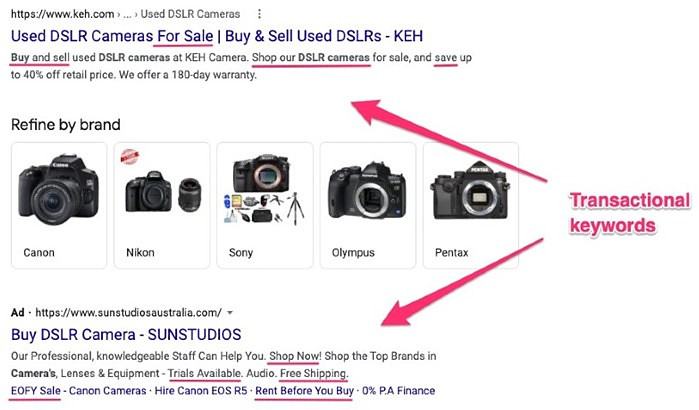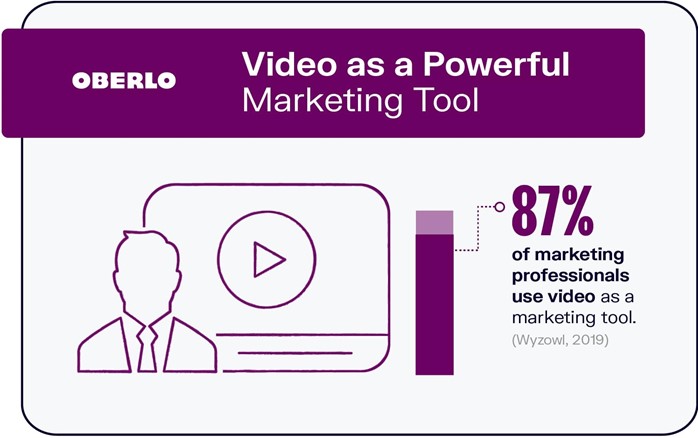Paid marketing is one of the most promising ways to promote your business. The various mediums for paid marketing include Google Ads, Bing Ads, Facebook Ads, LinkedIn Ads, etc., and you can generate significant results from them.
However, paid marketing is a bit trickier for B2B than B2C, and you need a rock-solid strategy to gain ample returns on every penny you spend on paid marketing for your B2B business.
Here are seven of the best result-driven strategies for your enterprise B2B marketing.
1. Use display advertising for brand awareness
People must be aware of you before they begin to consider your services. Finding a supplier in the first place is the first stage in any corporate decision-making process.
You can begin to raise awareness of your company and its services by combining Google's Display Network with ad placements in industry media. The idea is to boost the number of impressions—the number of times your ad appears on someone's screen.
Note that this type of digital advertising campaign isn't intended to produce leads; many marketers make that mistake. In the awareness stage, you can't expect leads or conversions. Moreover, targeting the bottom of the funnel without awareness is a waste because no one trusts an unknown brand.
Display advertising's goal is to get your company's name in front of as many eyes as possible—preferably the correct ones. You can target your display advertising using keywords, audiences, or a mix of the two. I normally suggest combining the two so that your targeting is neither too broad nor too narrow.
You can use Google to get more information on creating the right audience for your business.
2. Consider Google Text Ads for transactional keyword targeting
Google Text Ads are the most common type of paid search campaign employed by B2B marketers, but they're also one of the most misunderstood.
Transactional search terms, or keywords as they are commonly referred to, are terms that suggest a level of intent to purchase, or at the least get in touch. Words such as "solutions," "software," and "business" are commonly used at the end of such search inquiries.
For example, someone searching for "marketing" will have a different search purpose than someone searching for "marketing software," just like someone searching for "PPC" will have a different search intent than someone searching for "PPC agency."

Transactional search phrases are what you want to target with text advertisements on places such as Google because those searches have a higher level of intent, implying that someone is looking for a solution rather than performing a broad topical search.
Many businesses make the mistake of broadening their keyword targeting to spend more money and obtain more clicks. Usually, the search volume of transactional keywords is minimal, so don't panic if you're not using your budget. More sales are the ultimate goal!
3. Go organic for informational keyword targeting
Your website's content pillars, which are usually located within your blog or resource hub, should address the broader search phrases that are not targeted by your text ads. Those broader, more informational searches necessitate educational content rather than a call-to-action landing page. A content-driven SEO strategy should be implemented at that point.
You could target those broader keywords with an awareness campaign such as the one outlined at the start of this article, but unless you're offering actual information in the ad to solve the searchers' needs, it's always best to approach them from an SEO perspective.
4. Do remarketing
The B2B buyer journey can be long and complex, lasting years in some situations. That is why staying in touch and in front of your leads is just as vital as capturing them in the first place. That's where remarketing comes in.
People can be monitored once they've visited your website (as long as you have the right tracking installed on your site). Remarketing is serving relevant ads to previous website visitors depending on what they looked at or what actions they took. In certain ways, it may be considered lead nurturing.

Remarketing advertising or retargeting ads are those pesky advertisements that follow you across the Internet. But they work, and they're usually compensated based on impressions rather than clicks, making them inexpensive. Remarketing ads have higher conversion rates and are highly effective for nurturing cart abandoners.
However, you can't do B2B remarketing as a typical e-commerce business would. In B2B marketing, past website visitors should be directed to a beneficial piece of content or piece of information that they didn't consume the first time around, ideally bringing them further down the buyer funnel.
5. Incorporate video marketing
Because it adds a visual aspect to the buyer's journey, video marketing is particularly beneficial for B2B marketing.
More businesses are turning to case studies for video material to help them with their marketing efforts, and in the B2B sector, that trend is picking up steam: today, 70% of B2B customers watch videos as part of their product research before converting.

Videos are used to teach as well as entertain. B2B buyers may benefit from branded films to learn about new trends and build new skills. So, incorporate videos in your marketing and promote these on platforms such as YouTube to get massive traffic toward your marketing goals.
6. Focus on overall ROI
Don't get too wrapped up in calculating your cost per click (CPC) or the number of impressions your ads are receiving. Although there is always room for improvement, if your campaigns are set up correctly you should be able to analyze the entire investment vs. the value of the leads contributed to your funnel.
It's possible that you'll spend $2,000 on a lead worth $35,000 or even $10,000 on a lead worth $1 million. Although those are extreme cases, the principle is to consider your paid B2B campaign as a whole. Assess it by comparing the cost of your whole investment to the value of the leads you receive.
7. Have a customer-focused approach
For the past two years, businesses have placed a higher emphasis on offering interesting, interactive experiences for B2B buyers because they were restricted to their homes.
This has its own set of challenges. Those confined to their houses are surrounded by distractions, including every type of media ever devised. How do you compete for people's attention when they have access to the most recent theatrical release on their smartphone?
Interactive elements such as surveys, polls, games, and breakout sessions helped B2B companies capture the attention of their target audiences.
To engage audiences who are unhappy with regular webinars, more immersive digital experiences are still required. Those tendencies are obviously influenced by generational demography: Due to their upbringing in digital-first environments, Millennials account for up to 73% of all B2B customers. Customer experience expectations are built into their lifestyles and purchasing behaviors.
So, no matter what strategy you are working on, customer experience should be your prime focus.
More Resources on Paid Marketing and B2B Advertising
Five Google Ads Tips to Help You Become a Better PPC Marketer
Social Media Retargeting: The Benefits of Drawing Your Customers Back In
LinkedIn Ads, the B2B Marketer's Secret Weapon: AJ Wilcox on Marketing Smarts [Podcast]




